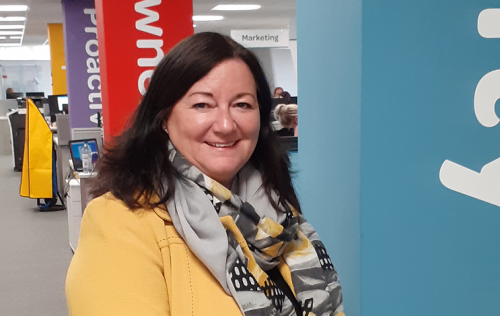Energy boss blasts ‘broken’ regulatory system

The CEO of not-for-profit energy supplier Robin Hood Energy has told TheBusinessDesk.com the firm is being “singled out” by industry regulator Ofgem and sections of the media because of its ability to disrupt the Big Six.
The Nottingham City Council-backed company was recently embroiled in a dispute with Ofgem over green tax payments which was resolved when the Council provided a £9.5 million loan to cover the outstanding debt.
Robin Hood met with Ofgem in early September to discuss a payment plan. During that meeting Ofgem welcomed the firm’s honest approach and said it would be in contact, but the energy supplier heard nothing from the regulator – despite twice attempting to re-establish contact – until it received a public summons for £9.5 million.
Although CEO Gail Scholes says the issue has now been “put to bed,” she believes the dispute was symptomatic of wider problems with the regulatory system, which she describes as “broken.”
She said: “The energy system in general is quite broken, and Ofgem is part of that chain. There are now over 70 companies operating within the market, which is a huge change from a few years ago. In my view the market hasn’t been regulated properly.
“We wrote to Ofgem in 2017 to say we didn’t feel enough was being done to help small firms entering the market. They knew the situation wasn’t sustainable but did nothing about it.”
Scholes says Robin Hood Energy, which provides 100 per cent green electricity to over 132,000 customers, has been open and honest throughout the tax row.
She said: “We met Ofgem after they initially discussed bringing in payment plans. They explained the steps they would take in the event of non-payment, which would have given us until March 2020 to pay any outstanding debt. We could have met them face-to-face later on to clarify the situation but they never responded to us, and the next we heard they’d put it out to the press that we owed them the full amount on 31 October.”
“We were honest with Ofgem,” adds Scholes.
“Two other businesses actually didn’t make their ROCS payments despite giving assurances to the contrary, but unlike us they never received the negative press coverage. Then on 30 October Ofgem started saying they were considering bringing in payment plans!
“As all of this was going on, Ofgem’s press officer liked a Tweet which claimed we could be going under. We definitely feel like we’ve been singled out.”
Scholes believes her firm’s commitment to the public ownership model makes the Big Six energy firms “nervous,” and this explains why Robin Hood has received a disproportionate amount of negative press.
She said: “The problem with being publicly owned and not-for-profit is that you are more public-facing than other energy suppliers. As a consequence you have more to lose from negative press coverage.
“It makes the market nervous when you do things differently. Our prepayment tariff brought everyone’s prices down in the East Midlands. With Robin Hood Energy, Nottingham customers can save £86 a year compared to the average cost of a Big Six Standard Variable Tariff.
“We’re disruptive but we’re visionary. We understand the energy needs of today and tomorrow, and we have a chance to change things.
“However, contrary to some of the claims in the press, we’re not a political vehicle. We’re a proper grown-up business. Yes, our principal investor is a Labour-run Council, but they want us to generate as much money as possible which can then be reinvested into helping people.
“This scares bigger firms because we can alter the market almost down to a cost basis.”
Scholes cites another example of how the firm is looking to change the game.
She said: “We recently established a vulnerability team to tackle the problem of fuel poverty, which is getting worse and worse in this country. This is a cross-party issue.”
“Out boardroom is another example of how we’re different,” she adds.
“I’m one of only two or three female CEOs in the industry, and 62.5 per cent of our board members are women.”
The firm, which has grown its staff from less than half a dozen to 300 since its inception, is now looking forward to the future.
Scholes said: “We’re expecting to grow by 20 per cent next year. This city has great potential. Nottingham could become a real energy hub in the future. We have all the right ingredients here.”









